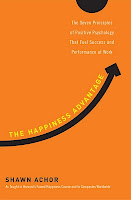Here is some summer career advice for the students in your family.
It’s no secret that we’re in a tough economy and that trend is likely to continue. Thus, getting work-ready is an important priority. Get an edge on the competition and start now to build experience to showcase on a resume. If you wait until you’re actually looking for that first big job, it might be too late.
The good news is that companies will be needing smart, savvy new entrants. We’ve been through two no-hiring phases in the last ten years, so there are big gaps in the talent pipeline. The aging BabyBoomers will ultimately retire or be replaced.
But it’s C-O-M-P-E-T-I-T-I-V-E out there.
Q. What do hiring decisionmakers like to see?
A. Passion, perseverence, leadership, pursuit of excellence.
Q. I don’t know what I want to do after graduation.
A. That’s OK. Why not use the time now to see what’s out there? Snoop around. Try on a summer job and see what it’s like in a particular company or industry. Use the process of elimination to find out what you definitely DON’T want to do. That’s a step forward.
Q. No one is hiring.
A. Volunteer at a non-profit. Every position inside the organization — from marketing to accounting, IT and fundraising – could use an extra dose of help and brainpower. This will look great on a resume and you can make some excellent contacts.
Q. I can get hourly work in retail or a restaurant, but I’m not interested in pursuing that field.
A. If you need $$ and this is what’s available, go for it. See if you can get continuing work in one specific company over a period of time. Summer job, holiday work. Demonstrate work ethic and longevity. Build relationships with customers, who may be able to help you in the future.
Q. I’ve been a camp counselor every summer. How will that help my future career?
A. Winning the slot year after year is a good thing. Shows you are well-regarded, reliable. Also indicates you can deal with the unexpected and all kinds of people issues. Homesick kids. Demanding parents, etc.
Q. What about an international program or mission initiative?
A. Definitely a good addition to your portfolio!
Q. I love music and I’m in a band.
A. Practice makes perfect. Keep it up! Maybe even keep track of hours/gigs/revenue. Add a quantitative
twist to a future resume. Track customer/venue names. You’re building a network for the future!
Q. I’m into writing…cooking…Superheroes…vampires…
A. Then turn your avocation into a potential vocation. Write a blog. Share your knowledge, passion with others. Become a young, up-and-coming thought leader.
Q. Will I need an internship?
A. YES. YES. YES. This is the primary hiring pool for future positions. Begin laying the groundwork now.
Q. I don’t want to work in someone else’s company. I want to have my own business.
A. Excellent! Then start now. Or preview the entrepreneurial life by working for another business owner/founder.
Make the most of this valuable time in your life. Have a great summer. Be a sponge. Listen and learn. Find out about people’s lives. Collect cards and contact information. Oh…and don’t do anything stupid/crazy/unretractable on-line. Honor your personal brand!!! :)
June 16, 2012 by Nancy Keene









